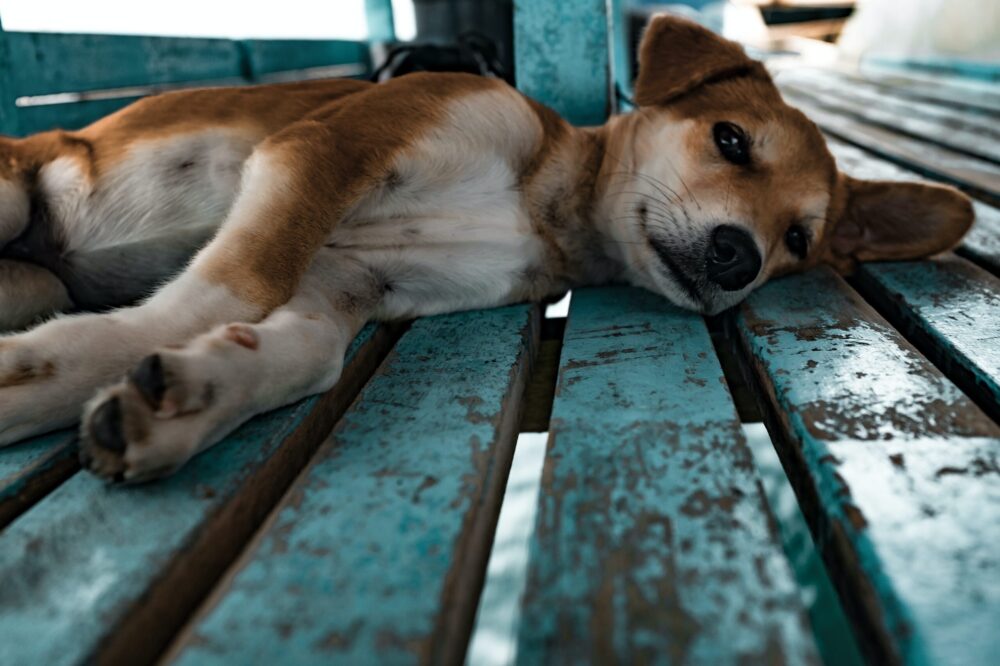
15 Mar Why my dog not eating?
WHY MY DOG NOT EATING?
Dogs with a decreased appetite (hyporexia) or a lack of appetite (anorexia) can be distressing for their owners, and can frequently signal a medical issue. Anorexia that lasts more than 24 hours should not be dismissed, since it is typically a sign that something else is wrong.
Here’s some information on why your dog isn’t eating, as well as a questionnaire to help you figure out what’s going on and what you can do to assist.
What Happens When a Dog Stops Eating?
Anorexia refers to a loss of appetite, whereas “hyporexia,” or inappetence, refers to a pet eating less than normal (although the term anorexia is commonly used to describe both scenarios). Food refusal can occur suddenly or gradually over time. It might be for any number of reasons, from finicky eating habits to a major sickness. The following are some of the most prevalent reasons for a dog’s inability to eat: An upset stomach can occur for a variety of reasons (for example, eating spoiled food, garbage, sweets, poisonous plants, or table scraps). Eating habits that aren’t to everyone’s liking.
A change in diet
Stress or emotional reasons (for example, during boarding, while an owner is out of town, or when a change occurs at home). It’s possible that your dog will struggle to adjust.)
Food chewing is tough due to dental issues. Anywhere in the body, there is pain. parasitic organisms (such as Giardia). Illnesses (such as Leptospirosis, gastrointestinal infections, anything that produces a fever or sore throat, or an upper respiratory infection that impairs a dog’s ability to smell his food). Food allergies, inflammatory bowel disease (IBD), and other digestive problems are all possibilities. Ingestion of a toxin. Ingestion of a foreign body (for example, swallowing a sock, toy, or other item that could get stuck and cause an intestinal blockage). Side effects of medication an undiagnosed medical problem (kidney disease, kidney failure, liver disease, diabetes, cancer, etc.).
Behavioral
In certain dogs, anxiety, worry, or fear can induce a loss of appetite, just as it can in humans. Keep in mind that what you consider unpleasant may not be the same as what your dog considers stressful, and even minor events might induce anxiety and make them refuse to eat. Changes in a dog’s habit or surroundings might cause anxiety, such as new people or dogs in the house, travel, or loud noises like construction, storms, or fireworks. Even something as basic as altering the timing or location of a meal can generate stress in more sensitive dogs, causing them to eat less. A dog may shun his or her food dish due to intimidation from another pet in the house. Many dogs dislike dining close to their housemates because there might be intimidation that we, as humans, miss. To avoid resource guarding or intimidation, it is advised that dogs be separated for feedings.
If the problem is stress or worry, dogs will usually resume eating within a day or two, once they have acclimated to the new situation. If stress and anxiety are regular, some dogs may require behavioral adjustment or medicinal therapy. Treating Dogs’ Appetite Loss Due To Environmental And Behavioral Factors When your dog refuses to eat for behavioral or environmental reasons, the procedure can be more unpleasant and time-consuming. You may need to seek the advice of a pet behavior specialist or a trainer on occasion.
Your dog refuses to eat but will drink water
Give it a day or two if your dog won’t eat but will drink water. It’s conceivable that your pet is suffering from a stomach ache. You should consult a veterinarian if you observe any additional abnormalities in your pet’s behavior. Maybe your dog went into the garbage and ate something he shouldn’t have, maybe he ate a bug, or maybe he just raced around too much. Instead of offering your dog treats now, wait until they are ready to eat their genuine food. Most digestive problems will go away in a few days, but if they don’t, make an appointment with your veterinarian as soon as possible.
Your dog eats but refuses to drink
It might be diabetes, a bladder infection, a urinary tract infection, or renal illness if your dog feeds but won’t drink water. These problems need a trip to the veterinarian. However, if you served your friend soup with the dinner, this may be a reason for him not to drink water.
Here are some general guidelines for getting your dog to eat on a consistent basis:
Ensure that your pet receives adequate exercise and attention. Make a time and/or financial investment in training. Don’t scold your dog for refusing to eat; instead, be patient and encouraging. Threats should only be given as a reward. Table leftovers should not be given.
Consult a veterinarian if you have any medical concerns. Otherwise, things might quickly deteriorate.









No Comments